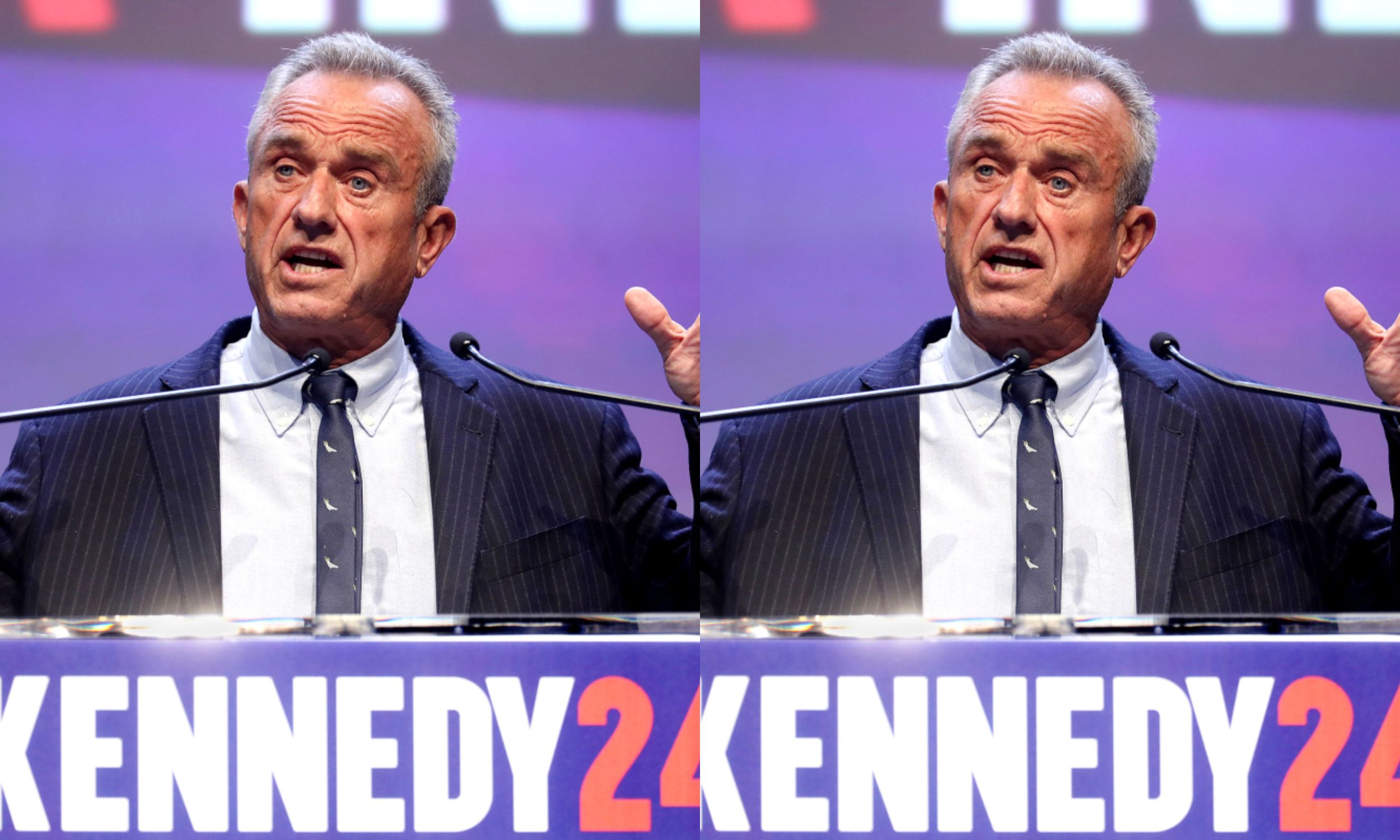With Vice President Harris emerging as the likely Democratic nominee, Robert F. Kennedy Jr.’s campaign faces mounting challenges. Kennedy is struggling to maintain public interest and keep his faltering presidential bid alive.
Despite his prominent family background and the unpredictability of his independent candidacy, Kennedy’s campaign is increasingly overshadowed by Harris’s rising prominence. Financial difficulties and concerns over ballot access further complicate his efforts. Critics are beginning to dismiss Kennedy as a serious threat, reflecting a shift in focus away from him.
Michael Ceraso, a Democratic strategist, attributed Kennedy’s troubles to various factors: a lackluster debate performance by President Biden, a former president’s assassination attempt, and internal Democratic conflicts. “RFK is irrelevant to all of this,” Ceraso remarked.

Robert Kennedy Jr.
Kennedy’s independent bid was initially fueled by dissatisfaction with both former President Trump and President Biden, who recently exited the race and endorsed Harris. With the dynamics of the race shifting, Kennedy’s primary argument has lost its impact.
Kennedy has faced skepticism from Democrats due to his minimal criticism of Trump compared to Biden. Recent revelations, including a leaked call where Kennedy seemed to align with Trump’s 2024 prospects, have only intensified scrutiny. “Kennedy’s involvement in backroom deals shows he realizes his spoiler campaign won’t lead to the White House,” stated Matt Corridoni from the Democratic National Committee.
Kennedy has struggled to redirect his attacks from Biden to Harris, leading to a clunky campaign strategy. His share of the vote has dwindled as Harris has garnered support from undecided Democrats, with recent polls showing Kennedy in the low single digits.
Recent polls paint a grim picture for Kennedy: a Wall Street Journal poll shows him at 4 percent, a New York Times/Siena College poll at 5 percent, and a Quinnipiac University survey at 6 percent—figures lower than his previous standing.
In a recent podcast, Kennedy claimed increased voter enthusiasm since Harris’s entry into the race, though this contrasts with a key indicator of campaign health: funding. Federal Election Commission filings reveal Kennedy’s campaign spent nearly $1 million more than it raised last month and carries approximately $3 million in debt. He has also faced challenges with his super PAC, American Values 2024, which raised only $228,000 in June.
Kennedy has been exploring new fundraising methods, including a collaboration with the Libertarian National Committee to allow larger donations. “This historic collaboration breaks the fundraising stranglehold of the two major parties,” Kennedy asserted.
A memo circulated by Ramsey Reid, who leads the DNC’s anti-Kennedy efforts, highlighted Kennedy’s declining poll numbers and financial struggles. “RFK Jr. won’t become president, but he can influence the outcome. We need to stay vigilant,” the memo warned.
Kennedy has also struggled to meet his self-imposed goal of ballot access in all 50 states. While he has gathered signatures in major states like California and Texas, he still lacks crucial battlegrounds such as Arizona and Wisconsin.
Polling expert Kyle Kondik predicts that Kennedy’s support will likely diminish further as the choice between Trump and Harris becomes clearer to voters. Despite Kennedy’s current difficulties, some Democrats caution that Harris’s current surge may not persist, given her historically uneven campaigning record.
Observers are calling for Kennedy to consider stepping down or even endorsing Trump, with speculation that he might receive a high-ranking appointment or ambassadorial position. Kennedy has dismissed immediate plans to back Trump but hasn’t entirely ruled out the possibility. “I can’t imagine doing that now, but anything is possible,” Kennedy noted.























